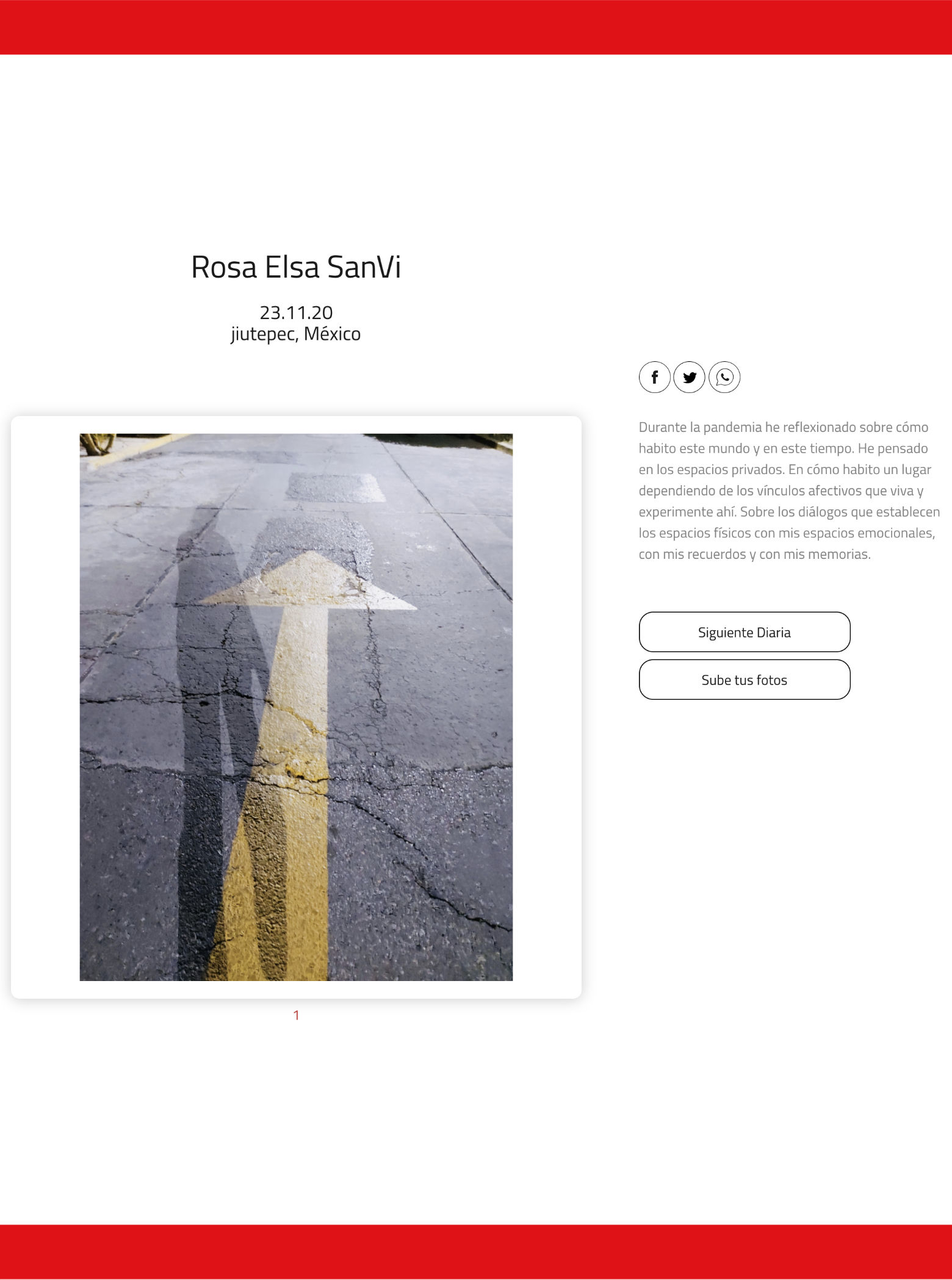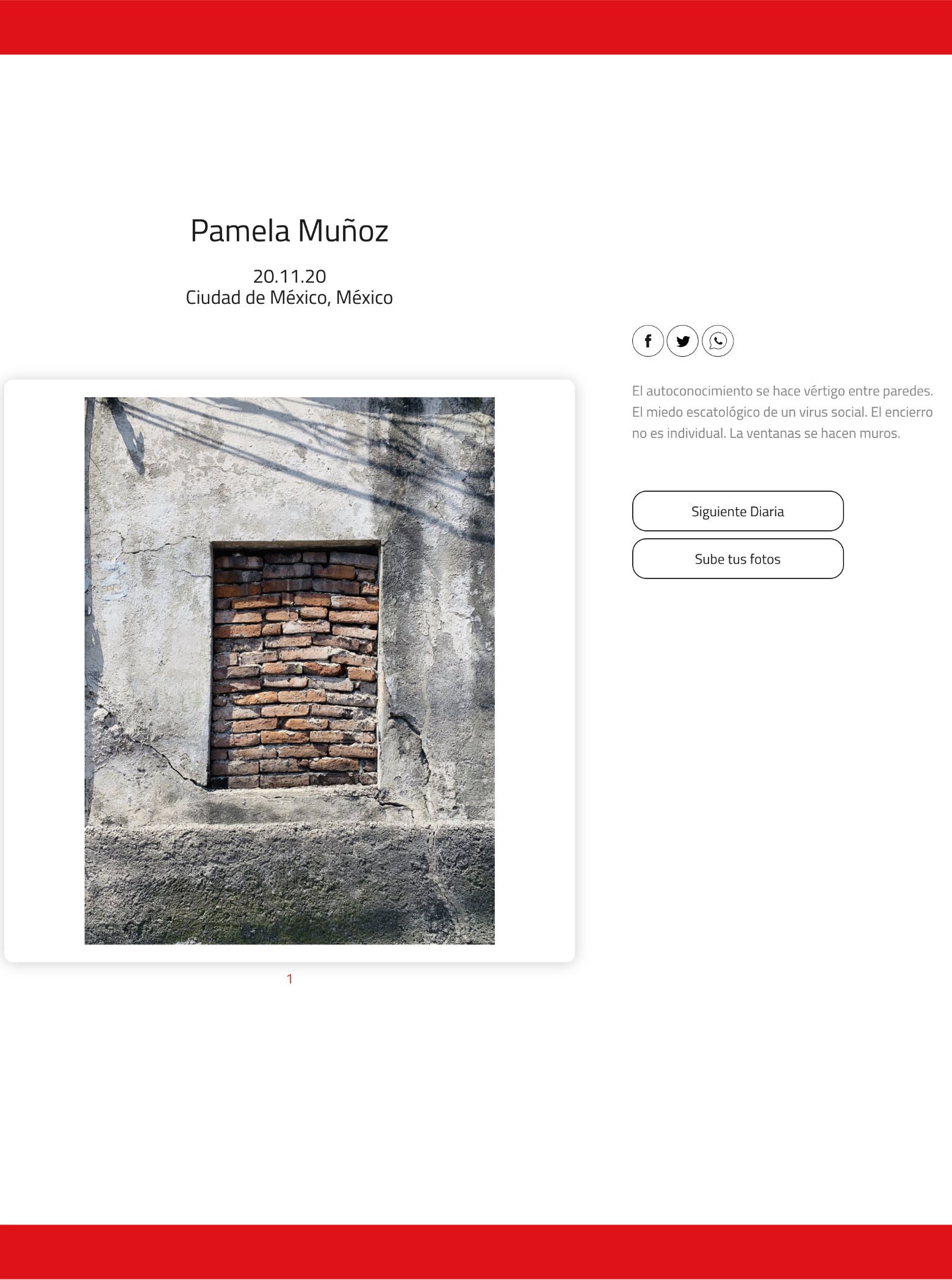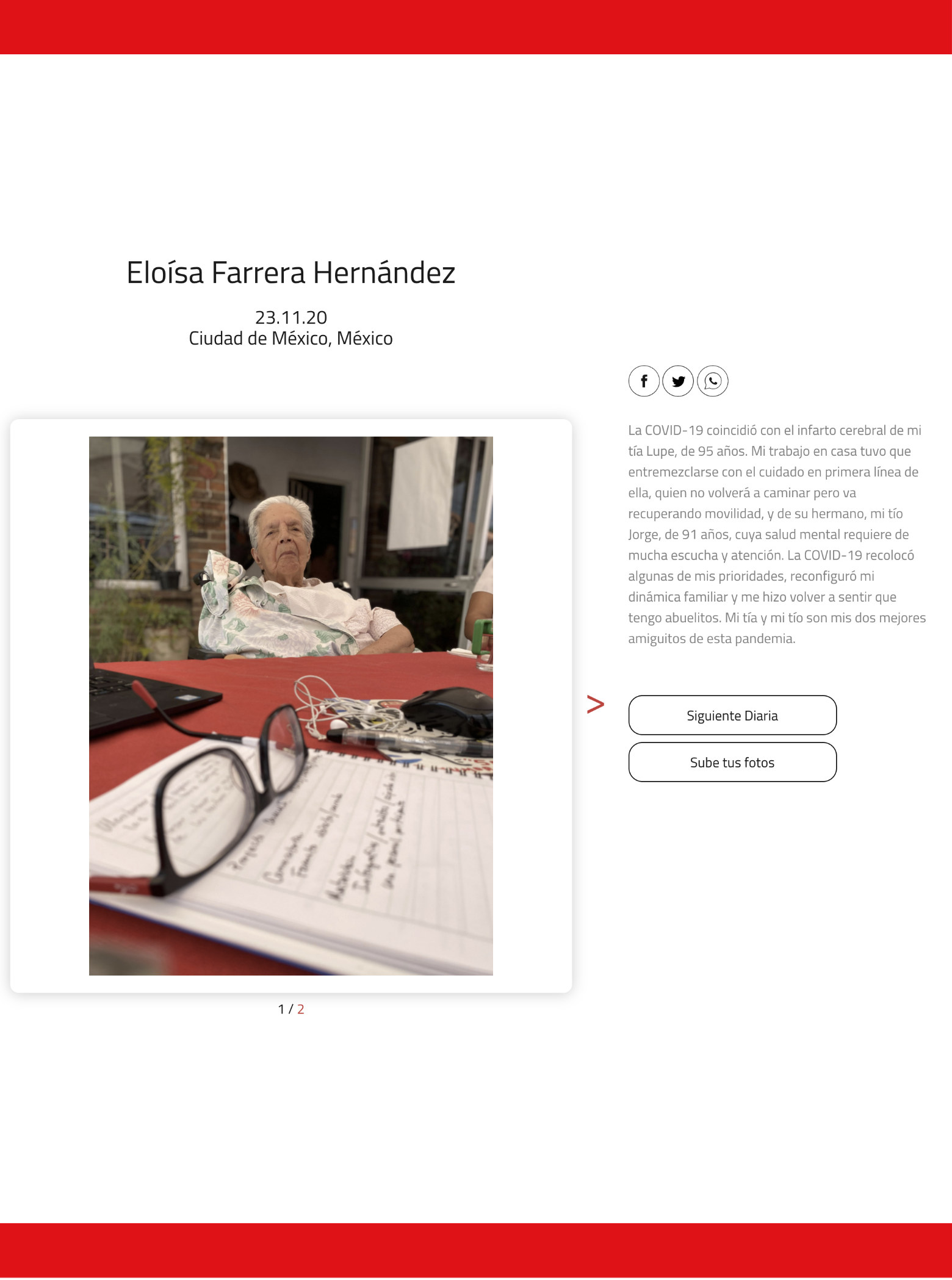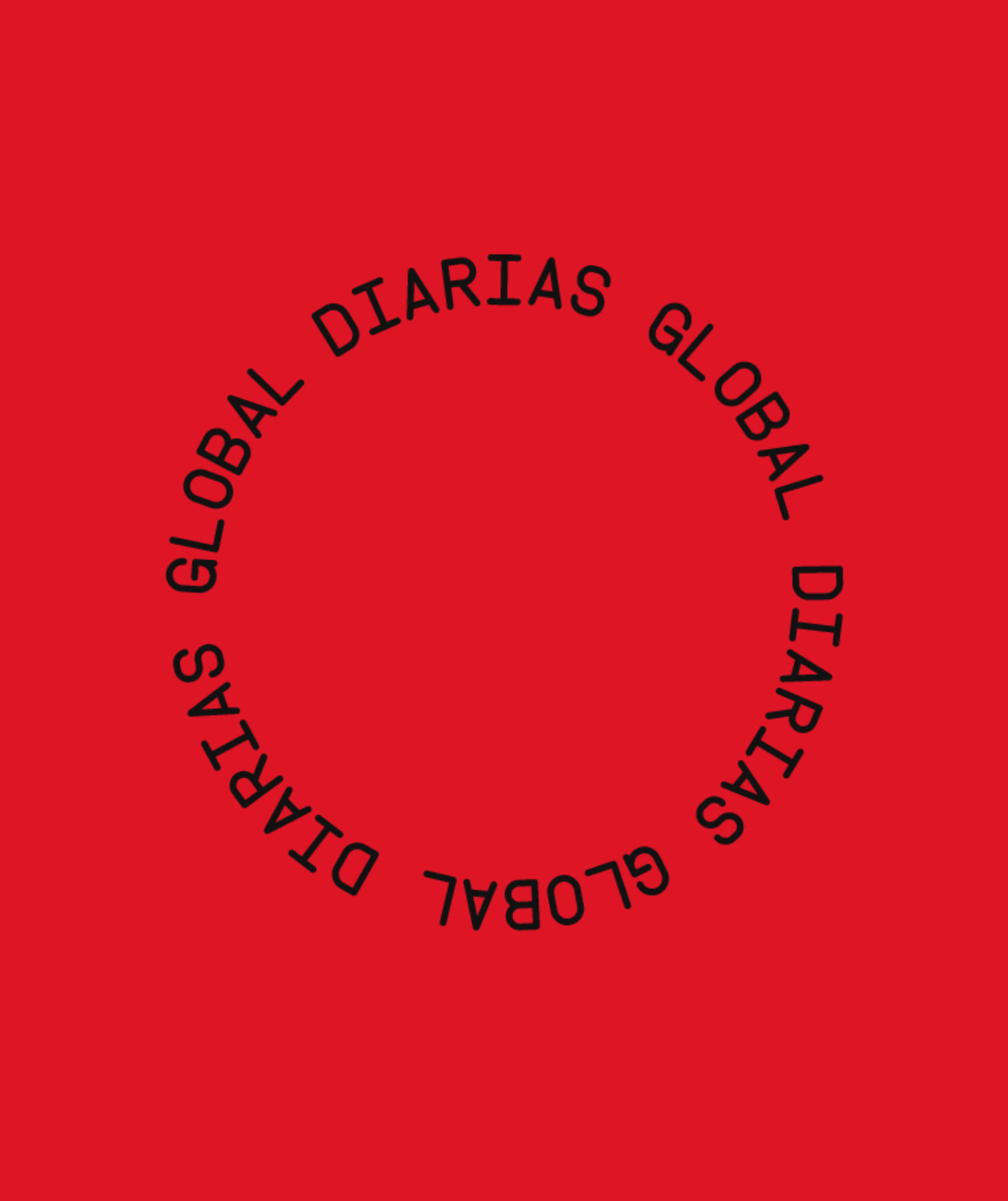Lorena Wolffer
virtual exhibition
Diarias global
This participatory cultural intervention is centered on registering and making visible the new realities faced by girls, young women and women during the COVID-19 pandemic. Produced by the Museo Universitario Arte Contemporáneo and hosted on a digital platform, the intervention collects photographs of the life transformations experienced during this period of emergency, taken by participants in response to a global call.
Artist’s note: Diarias is diaries in feminine, a noun that doesn’t actually exist in Spanish.
PARTICIPATE AND SEND YOUR PHOTOS HERE

This pandemic has revealed, perhaps like no other recent phenomenon, the monumental failures of our governments and institutions and has exposed the colossal inequities behind the hegemonic cisheteronormative mandates that regulate our societies. Among the dramatic ramifications of this pandemic globally, its impact on the lives of girls, young women and women—both cis and trans—has been overwhelming, with the vast majority facing a series of accumulating crises, added to the violences that we already experience on a daily basis in every sphere of our lives.
From one moment to the next, many of us who had finally managed to extricate ourselves from the physical and political space of the house found ourselves forced to return to the bowels of domesticity and normative family dynamics. For those who have been unable to avoid going out to work even for a single day, the challenges and risks that already determined the shape of their lives have multiplied. The pandemic has forced many to live alongside their aggressors (whether they be their partners, fathers, uncles, cousins or brothers) for extended periods of time in that dangerous space that is the house. Work, which was already excessive, has only increased, as the habitual caretakers for others, and so our professional and economic realities have become even more precarious and unequal.
The paradigm shift we are undergoing has redrawn our realities and will continue transforming them, even after we can leave our houses without risking our health and that of those who live with us.

How can we bear witness to the differentiated impact of the COVID-19 pandemic on our lives? How do we guarantee our rights and freedoms in this new world? What forms of action can we model together in the here and now?
Diarias global is an intervention that takes an initial step toward resolving these questions. With #JuntasSeamosVisibles, this global call asks that girls, young women and women share between one and four images of the situations, spaces, challenges and relationships that have shaped their lives during the pandemic. On this platform, each participation will be registered individually, localized on a map and timeline. They can be signed with the participant’s name or pseudonym or submitted anonymously.

In addition to Diarias global, this platform also hosts Diarias/Communities of Care, another project that I began to develop in the early months of the pandemic, with weekly entries authored by a guest and six cis and trans women from her affective community. It also contains a section with a variety of materials on gender equality, the rights of girls, young women and women, the differentiated impact of COVID-19 on our lives and projects that share the Diarias global spirit. Later on, it will also include Diarias/Resistencias, a manual that compiles new strategies and actions for disobedience, contempt, insurgency and critical collectivization developed by girls, young women and women in and for the new world.
Diarias global aims to be an exercise of collective enunciation, a repository that is continuously updated, imagined from a global, feminine we. The project seeks to make us visible together in this new, unknown world that is determined every minute by a virus that we are just beginning to understand and by the strategies that our governments are implementing in order to tackle it. Nearly a year after the emergence of COVID-19, with more than 40 million people infected and over one million deaths around the world, it is crucial for girls, young women, and women to bring what each of us is experiencing into public spheres: if we look at our own reality, we can see that of others and bring our gazes together to record who we are today.
Lorena Wolffer

Lorena Wolffer, Diarias global, 2020
Participatory online intervention
Produced by the University Museum of Contemporary Art
Web design and programming: Exit-1
Lorena Wolffer
(Mexico City,1971; lives and works in Mexico City)
For over twenty years, Wolffer’s work as an artist and cultural activist has been a permanent site for enunciation and resistance at the intersection between art, activism and feminism. While her own work addresses issues related to the cultural fabrication of gender and advocates the rights, agency and voices of women and individuals with non-normative identities, she has also produced, facilitated, and curated projects by a heterogenous range of artists on platforms such as the museum, public spaces and television. From the creation of radical cultural interventions with diverse communities to pioneering pedagogical models for the collective development of situated knowledge, these projects are produced within an inventive arena that underlines the pertinence of experimental languages and displaces the border between so-called high and low culture. Her work—a stage for the voices, representations, and narratives of others—articulates cultural practices based on respect and equality.



